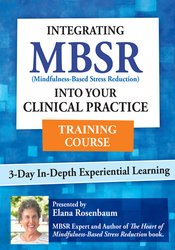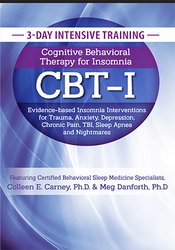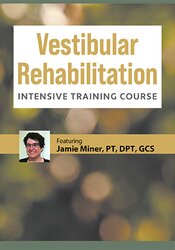Clinical Applications of Polyvagal Theory in Trauma Treatment with Stephen Porges & Deb Dana: Integrating the Science of Safety, Trust, Self-Regulation and Attachment – Stephen Porges
$199.99 Original price was: $199.99.$55.00Current price is: $55.00.
Clinical Applications of Polyvagal Theory in Trauma Treatment with Stephen Porges & Deb Dana: Integrating the Science of Safety, Trust, Self-Regulation and…
Salepage link: At HERE. Archive: https://archive.is/wip/Sx5hT
Scientific evidence reveals how to help your clients feel safe enough to get to the REAL issues so they can finally heal from trauma, depression, addiction and other mental health challenges
Traumatic events rewire your clients’ nervous system—keeping the autonomic nervous system (ANS) in a constant physiological state that supports fear and defense. This can make them easily agitated, always scanning the environment for signs of danger, or numb and completely shut off from the world.
When the nervous system is in self-protection mode, your clients are physically incapable of feeling safe, connecting with others or healing mental and physical wounds, which compounds their suffering.
You can help them find their way back to safety by leveraging the revolutionary tools and insight from the Polyvagal Theory.
Polyvagal Theory: Better living through neurobiology
Polyvagal Theory is a brain-body science that’s helped thousands of therapists make significant breakthroughs with clients suffering the impacts of trauma.
It provides scientific evidence—and the tools—to establish safe, caring, stable and mutually trustworthy relationships with clients.
Polyvagal Theory helps to explain why clients get stuck in either a hyper-aroused or hypo-aroused state post-trauma—and gives you a roadmap to help them return to a place of calm and safety…
And it can be embedded into any clinical treatment method you use in your practice, including:
- IFS
- CBT
- DBT
- ACT
- EMDR
- And more!
In this online course, you’ll learn the principles and practical applications of Polyvagal Theory from the most qualified experts on the topic: Dr. Stephen Porges and Deb Dana.
There is no better teacher of Polyvagal Theory than the founder himself, Dr. Stephen Porges. And Deb Dana is the best teacher of the clinical application of the theory, as she’s widely credited with adapting Polyvagal Theory to trauma treatment.
From their work, Polyvagal Theory now informs many innovative treatments, especially in trauma.
Get practical guidance into the therapeutic power of facial expression, eye contact, voice modulation and listening to help your clients overcome traumatic experiences, attachment wounds and barriers to self-regulation.
Polyvagal Theory is an excellent practice addition for:
- Counselors
- Social Workers
- Psychologists
- Case Managers
- Addiction Counselors
- Marriage and Family Therapists
- Nurses, and
- Other Mental Health Professionals
Discover why leading therapy experts including Bessel van der Kolk, Janina Fisher, Pat Ogden, Rick Hanson, and others have integrated this insight into their work.
WHAT YOU’LL DISCOVER IN THIS COURSE
PART ONE: Clinical Applications of the Polyvagal Theory with Stephen Porges, PhD: Trauma, Attachment, Self-Regulation & Emotions
SECTION I: The Neurobiology of Connection, Trust and Safety
Why Connection is Crucial to Our Survival
- The building blocks of healthy relationships
- The 2 phases of co-regulation and how to use them in your practice
- How safety optimizes the human experience
- How trauma disrupts both connectedness and co-regulation
Polyvagal Theory: The Adaptive Function of Evolutionary Changes in the Autonomic Nervous System (ANS)
- Origins of Polyvagal Theory
- Immobilization with fear vs. immobilization without fear
- The vagal paradox: Discovering a lost defense system
- How the evolution of the nervous system impacts our emotional reactions to trauma
- How your clients’ autonomic state reveals a window and target for intervention
- Predictable health consequences of a dysregulated ANS
SECTION II: Breakdown of Polyvagal Theory into Its Usable Parts
Principles of Polyvagal Theory
- The Social Engagement System in promoting connectedness, trust, play and intimacy
- Deconstructing the Social Engagement System for greater understanding of how the ANS regulates itself
- The embedded optimism of Polyvagal Theory
- The Face-Heart Connection: Why facial expressions reflect a person’s polyvagal state
- How some physical conditions—and Botox—negatively impact the Social Engagement System
- Neuroception and the unconscious assessment of safety and risk
SECTION III: Applying the Polyvagal Theory in Clinical Settings
Using Vocal Music and Voice in Healing Trauma
- How the detached middle ear in mammals is a key component of a well-regulated ANS
- How to speed up healing by incorporating music and vocalizations in your practice
- The importance of active listening in a Polyvagal Theory-informed practice
Simple Ways to Incorporate Polyvagal Theory into Your Existing Practice
- How the principles to establish therapeutic relationships are like play
- Portals for neural exercises in Polyvagal Theory-informed therapy (play, singing, breathing exercises, etc.)
- How to create an environment of safety for your clients that encourages trust
- Recovering the Social Engagement System in clients experiencing shutdown
- How to incorporate the Safe and Sound protocol into your practice
- The new paradigm of Polyvagal Theory-Informed clinical practice
PART TWO: Deb Dana on Polyvagal Theory Informed−Trauma Assessment and Interventions: An Autonomic Roadmap to Safety, Connection and Healing
SECTION I: Understanding the Principles, Science and Foundations of Polyvagal Theory
Evolution of the autonomic nervous system (ANS)
- The impact of trauma on the ANS
- Benefits of autonomic flexibility
- Risks connected to autonomic rigidity
- Creating a healing environment by listening to your ANS
The Three Organizing Principles of Polyvagal Theory
- Neuroception: How the unconscious scanning of the ANS for clues of danger or safety affects traumatized clients
- Hierarchy: Three predictable pathways of response
- Co-regulation: The biological imperative of connection
What Is the Vagus Nerve and What Role Does It Play in Regulating the ANS
- The vagal paradox
- The ventral vagus nerve
- The dorsal vagus nerve
- The vagal brake
- How to find ventral vagal anchors that help activate feelings of social engagement and safety
SECTION II: Processes to Help Move from Dysregulation to Regulation
Tools You Can Use in Polyvagal Theory−Informed Therapy
- Savoring
- The 4 R’s
- Notice and Name
- The Autonomic Ladder
- The Personal Profile Map
- And many more!
How to Identify Blended States
- State of Play
- State of Stillness
The Social Engagement System
- What it is and why it’s essential to understanding Polyvagal Theory—and your clients
- How to engage the 5 elements of the Social Engagement System
- Using and exercising the Social Engagement System to regulate states in your clients
SECTION III: Creating Polyvagal Theory−Informed Trauma Treatment for Your Clients
Helping your Clients Orient Themselves Prior to Treatment
- Helping your clients determine “foreground” and “background” ANS signals
- A simple touch you can use to activate clients’ ventral vagal system
- How to help your clients identify the “triggers” and “glimmers” of their ANS
- How to use your voice to create an environment of safety for your clients
Deep Dive into Using Co-Regulation with Your Clients
- Tools to help you regulate your own autonomic state to create an environment of safety for your clients
- Understanding “biological rudeness” and the cycle of reciprocity, rupture and repair
- Resources and worksheets for regulation, including coordinated movement and breathing exercises, mirroring, and more
- What to do if you can’t make a positive nervous system connection with a client
The Flow of a Polyvagal Theory-Informed Session
- How to assess for patterns in clients’ autonomic states to better inform treatment planning
- How to regulate and reshape your client’s autonomic state
- Putting all the tools together to create productive, successful sessions with clients
- The one question that must guide your sessions
- The phases of trauma work, from a Polyvagal Theory perspective
- Understanding the responsibilities of a Polyvagal Theory-guided therapist
- Creating a launch plan for your Polyvagal Theory-guided practice
When you order today, you’ll receive the tools and understanding you need to add Polyvagal Theory to your practice so you’ll know how to create that crucial sense of safety in your clients.
PLUS, you’ll receive this completely FREE bonus with your order:
Neuroscience & Physiology of Trauma: Extended Interview with Stephen Porges PhD
In this fascinating interview, Dr. Porges reveals:
- The origins of Polyvagal Theory and how it came to be used in trauma treatment
- How Polyvagal Theory relates to the experience of stress and the resultant fight-flight-freeze response
- How to break down some of the intellectual constructs that get in the way of understanding—and treating—the body’s responses to trauma
- And much more!
The insights you’ll get from this interview will help you incorporate all that you’ve learned into your practice.
Here's an overview of the prominent keywords and a list of famous authors:
Business and Sales: Explore business strategies, sales skills, entrepreneurship, and brand-building from authors like Joe Wicks, Jillian Michaels, and Tony Horton.
Sports and Fitness: Enhance athleticism, improve health and fitness with guidance from experts like Shaun T, Kayla Itsines, and Yoga with Adriene.
Personal Development: Develop communication skills, time management, creative thinking, and enhance self-awareness from authors like Gretchen Rubin, Simon Sinek, and Marie Kondo.
Technology and Coding: Learn about artificial intelligence, data analytics, programming, and blockchain technology from thought leaders like Neil deGrasse Tyson, Amy Cuddy, and Malcolm Gladwell.
Lifestyle and Wellness: Discover courses on holistic health, yoga, and healthy living from authors like Elizabeth Gilbert, Bill Nye, and Tracy Anderson.
Art and Creativity: Explore the world of art, creativity, and painting with guidance from renowned artists like Bob Ross and others.
All the courses on WSOlib are led by top authors and experts in their respective fields. Rest assured that the knowledge and skills you acquire are reliable and highly applicable.
Specification: Clinical Applications of Polyvagal Theory in Trauma Treatment with Stephen Porges & Deb Dana: Integrating the Science of Safety, Trust, Self-Regulation and Attachment – Stephen Porges
|
User Reviews
Only logged in customers who have purchased this product may leave a review.
$199.99 Original price was: $199.99.$55.00Current price is: $55.00.
Related Products

3 Day -Integrating MBSR into Your Clinical Practice – Elana Rosenbaum

3-Day Intensive Training-Cognitive Behavioral Therapy for Insomnia (CBT-I)-Evidence-based Insomnia Interventions for Trauma, Anxiety, Depression, Chronic Pain, TBI, Sleep Apnea and Nightmares – Meg Danforth, Colleen E. Carney

3-Da -Vestibular Rehabilitation Intensive Training Course – Jamie Miner

3-Day Comprehensive Mindfulness Training – Advanced Mindfulness Practitioner Course – Rochelle Calvert

3-Day Advanced Mindfulness Course – Donald Altman

$199.99 Original price was: $199.99.$55.00Current price is: $55.00.







There are no reviews yet.